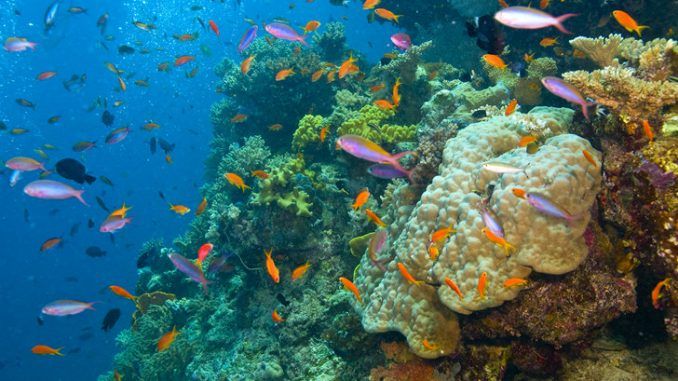
According to Australian researchers rising carbon dioxide in the atmosphere together with global warming is leading to increased acidity of the oceans and the predicted collapse of the marine food chain from the top down.
The decrease in the bio diversity of marine life will have consequences for the big fish to the little fish and ultimately humanity who depends on the fruits of the sea.
Raw Story reports:
The first-of-its-kind global analysis of marine responses to climate change forecasts a grim future for fish.

BYPASS THE CENSORS
Sign up to get unfiltered news delivered straight to your inbox.
You can unsubscribe any time. By subscribing you agree to our Terms of Use
Marine ecologists from the University of Adelaide reviewed more than 600 published studies on coral reefs, kelp forests, open oceans, and tropical and arctic waters.
Their meta-analysis, published in the October 12 edition of the US peer-reviewed journal Proceedings of the National Academy of Sciences, showed that ocean acidification and warming will cut down on the diversity and numbers of various key species.
“This ‘simplification’ of our oceans will have profound consequences for our current way of life, particularly for coastal populations and those that rely on oceans for food and trade,” said associate professor and co-author Ivan Nagelkerken.
Very few organisms are expected to be able to adjust to warmer waters and acidification, with the exception of microorganisms, which are expected to increase in number and diversity.
But the increase in the smallest plankton is not expected to translate into more zooplankton and small fish, meaning bigger fish will struggle to find enough food to eat.
“With higher metabolic rates in the warmer water, and therefore a greater demand for food, there is a mismatch with less food available for carnivores — the bigger fish that fisheries industries are based around,” said Nagelkerken.
“There will be a species collapse from the top of the food chain down.”
Oysters, mussels and corals are also expected to take a hit from global warming, which will further harm the environment for reef fish.

